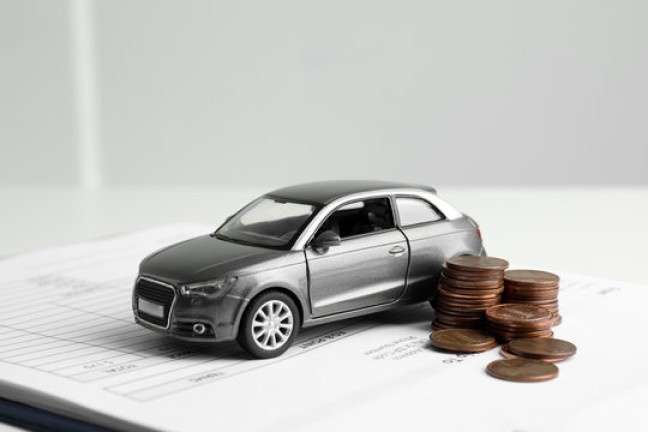When I first considered financing a car, the process seemed daunting. Like many people, I had a lot of questions. Should I go for a loan? Should I lease? And what about autopay for car finance? Over time, I learned a lot about these options, and I want to share the details with you. If you’ve been thinking about autopay for car finance but don’t know where to start, you’ve come to the right place. In this article, I’ll break down everything you need to know in a straightforward way.
Table of Contents
What is Autopay Car Finance?
Autopay car finance refers to the automatic deduction of car loan or lease payments from your bank account. Instead of manually making payments each month, autopay allows you to set up an automatic transaction on a predetermined schedule. This is an option many car buyers and lessees choose for convenience, ensuring they never miss a payment.
How Does Autopay Work in Car Financing?
With autopay, once you’ve signed a financing agreement, you link your car finance account to your bank account. Then, on a set date each month, the agreed-upon amount is automatically deducted from your account. It’s as simple as that.
Many lenders and dealerships offer autopay as an option because it benefits both parties. For the borrower, it reduces the risk of missed payments, which can lead to late fees or damage to your credit score. For the lender, it ensures timely payments, which helps maintain a healthy cash flow.
The Pros of Autopay Car Finance
- Convenience: You no longer need to remember to make payments manually each month. Autopay takes care of that for you.
- Avoid Late Fees: By automating your payments, you avoid missing deadlines, which means no late fees or penalty charges.
- Boost Your Credit Score: Timely payments are reported to the credit bureaus, helping to improve your credit score.
- Flexible Payment Dates: Many lenders allow you to choose the date that works best for you, so you can align the payment with when you get paid.
The Cons of Autopay Car Finance
- Lack of Control: Once autopay is set up, you don’t have to do anything, but if there’s an issue with your bank account or the loan balance, you might not notice until it’s too late.
- Risk of Insufficient Funds: If your bank account doesn’t have enough funds to cover the payment, you might face overdraft fees.
- Difficult to Cancel: Some lenders make it hard to cancel autopay or modify the payment amount, which could be an issue if your financial situation changes.
Comparing Autopay vs Manual Payments
Let’s take a closer look at autopay compared to manual payments, as this can give you a better perspective.
| Feature | Autopay | Manual Payments |
|---|---|---|
| Convenience | Payments are automatic, no action needed | You have to remember to make payments each month |
| Late Fees | Less likely to miss payment, fewer fees | More likely to forget or delay payment, leading to fees |
| Credit Score Impact | Timely payments boost credit score | Manual payments depend on your discipline |
| Flexibility | Fixed payment date, but often adjustable | You choose when and how much to pay |
| Control | Less control once set up | Complete control over when and how to pay |
Autopay Car Finance Example
To give you a better sense of how autopay works, let’s go through a detailed example. Imagine you’re financing a car for $20,000 with an interest rate of 5% for a 60-month term. Your monthly payment is $377.42.
Here’s how autopay would work in this case:
- Loan Amount: $20,000
- Interest Rate: 5% annual interest
- Loan Term: 60 months
- Monthly Payment: $377.42
If you set up autopay, every month, $377.42 will be automatically deducted from your bank account on the due date. You don’t have to worry about manually logging into a website or writing checks. This ensures that your payments are on time, which helps to improve your credit score.
How Autopay Can Help Your Credit Score
One of the primary benefits of using autopay for car financing is that it can positively affect your credit score. Timely payments contribute to a positive payment history, which accounts for about 35% of your credit score. Here’s how autopay can help:
- Consistency: As long as the payments are made on time every month, your credit report will reflect that. Over time, this will help improve your score.
- Avoiding Missed Payments: Missing payments can hurt your credit score. Autopay helps eliminate that risk.
- Building a Positive Credit History: The longer you have a positive payment history, the better your score will be.
Autopay vs Traditional Car Financing Payments
Now, let’s compare traditional car financing payments, which are manually made, to autopay. In many ways, autopay is superior, especially when it comes to avoiding late fees and making timely payments.
| Feature | Traditional Payments | Autopay Payments |
|---|---|---|
| Ease of Use | Must remember payment date | Payment is automated, no need to remember |
| Risk of Missed Payment | High risk if forgetful | Minimal risk of missing payments |
| Late Fees | Likely if payment is missed | Rarely occurs with autopay |
| Credit Score Impact | Depends on manual payments being made on time | Consistent, timely payments improve score |
Autopay and Its Impact on Your Loan Terms
Some lenders might offer a small discount on the interest rate or a reduction in monthly payments if you choose autopay. While this might not be significant, it can still be a useful perk. For example, if you’re financing a car loan of $25,000, a 0.25% reduction in the interest rate could save you money over the life of the loan.
Let’s say you’re financing $25,000 with a 6% interest rate for 72 months. Without autopay, your monthly payment would be $422.65. However, with autopay and a 0.25% discount, your interest rate drops to 5.75%, and your monthly payment becomes $418.46. Over the course of the loan, this could save you a few hundred dollars.
Things to Keep in Mind When Setting Up Autopay
Before setting up autopay for car finance, there are a few important things I’d recommend considering:
- Account Balances: Ensure that your bank account has sufficient funds to cover the payment.
- Payment Date: Choose a payment date that aligns with when you receive your paycheck.
- Review Your Statements: Regularly check your loan statements to ensure that everything is accurate and payments are being applied correctly.
- Emergency Fund: Make sure you have enough funds set aside in case of emergencies, as you don’t want to rely solely on autopay for financial stability.
Alternatives to Autopay for Car Finance
If you’re not sure about autopay, there are alternatives. For instance, you could opt for manual payments where you pay via check, online transfer, or through your lender’s website. Alternatively, some people use bill pay services provided by their bank to automate payments while retaining more control.
Another option is refinancing your car loan to secure a lower interest rate, either with or without autopay. If you’re unhappy with your current lender or rate, refinancing might be a good way to reduce your monthly payment.
Conclusion
Autopay for car finance is a convenient and practical solution that many people use to ensure they don’t miss a payment. It can help you stay on track with your finances, improve your credit score, and avoid unnecessary fees. However, it’s important to weigh the pros and cons, as well as the potential impact on your overall financial situation. Autopay is not the only option, but for many, it offers the simplicity and peace of mind that they need. By carefully considering your options and understanding how autopay works, you can make a smart decision about how to manage your car finance.





